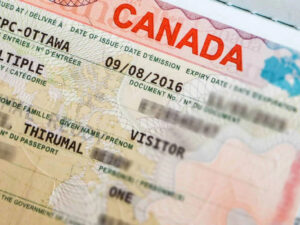If you’re a skilled professional from outside the EU/EEA/Switzerland and want a practical way to enter Germany to look for a job on the ground, the Opportunity Card (Chancenkarte) is built for you. It’s a 12-month, points-based pathway that lets you job-hunt in Germany, work up to 20 hours per week, and even trial with employers while you land a qualified role and switch to a full work residence title.
Below, you’ll find a clear step-by-step process, an updated points table, realistic costs, document checklists, expert tips, and 10 FAQs—all based on the latest official guidance for 2025.
What the Opportunity Card Actually Gives You (and What It Doesn’t)
What you can do with it:
-
Enter Germany for up to 12 months to search for qualified employment.
-
Work part-time up to 20 hours/week while job-hunting.
-
Do job trials for up to two weeks per employer to assess fit.
What it doesn’t automatically give you:
-
It’s not a full work permit for unrestricted employment or self-employment. Once you secure a qualified job (or decide to found a business), you’ll switch to an appropriate residence title (e.g., EU Blue Card, skilled worker permit, or self-employment permit). Some cities explicitly note that self-employment isn’t permitted on a search Opportunity Card.
Good to know: If your job meets the rules for qualified employment but no other residence title fits, the Opportunity Card can sometimes be extended (converted) for up to two years.
Who Qualifies? Two Ways In
You can qualify under Option 1 (no points needed) or Option 2 (points system).
-
Option 1 — Recognized qualification:
You have a German degree/training, or your foreign degree/training is fully recognized as equivalent in Germany. No points required. -
Option 2 — Points system (minimum 6 points):
You have a state-recognized university degree or at least two years of state-recognized vocational training in your home country, plus meet language and other criteria below.
Language baseline for Option 2:
-
German A1 or English B2 (CEFR) minimum. (Higher German gives you extra points.)
Funding your stay:
For both options, you must prove you can cover living costs—typically via a blocked account (2025 rate: €1,091/month, i.e., €13,092/year) or a declaration of commitment. A part-time job offer (≤20h/week) can count toward financing.
Table 1 — 2025 Opportunity Card Points System (Minimum 6 Points)
| Criterion | Points | What counts / notes |
|---|---|---|
| Partial recognition of foreign qualification (or compensatory measure required for a regulated profession) | 4 | Recognition authority finds partial equivalence; you’re on track to full recognition. |
| Qualification in a shortage occupation | +1 | e.g., healthcare, IT, engineering, teaching (see current list). |
| Professional experience (related to your field) | 2 | ≥2 years in the last 5 years. |
| 3 | ≥5 years in the last 7 years. | |
| German language skills | 1 | A2 (CEFR). |
| 2 | B1. | |
| 3 | B2 or higher. | |
| English language | +1 | C1 or native English adds one extra point. |
| Age | 2 | Up to 35th birthday. |
| 1 | Age 35–40. | |
| Previous legal stay in Germany | +1 | ≥6 continuous months within the last 5 years (non-tourist). |
| Spouse/partner also qualifies | +1 | Partner meets Opportunity Card requirements too. |
Tip: Use the official Self-Check to estimate your eligibility before applying.
The Application Routes (Outside Germany vs Already in Germany)
You typically apply online via the Consular Services Portal or directly at the German mission responsible for your residence. In many countries, the online portal is mandatory. If you already live in Germany on a valid residence title, apply at your local foreigners authority.
Online application: Consular Services Portal (check if your country is activated).
-
Embassy/Consulate: See your mission’s page and appointment system.
-
In Germany: Contact your local Ausländerbehörde.
Step-by-Step: How to Apply (and What to Prepare)
1) Confirm your path (Option 1 vs Option 2)
-
Option 1: You already have German recognition (or a German degree/training).
-
Option 2: You’ll apply via points. Ensure you satisfy the language baseline (German A1 or English B2) and can reach 6 points.
2) Secure proof of your qualification
-
University degree: Check Anabin (degree + institution) or request a ZAB Statement of Comparability.
-
Vocational training (non-academic): Request a ZAB Statement on a Foreign Vocational Qualification (DAB).
3) Gather language certificates
-
German and/or English certificates from recognized exam bodies (e.g., Goethe-Institut for German).
4) Prepare proof of subsistence
-
Blocked account: 2025 rate €1,091/month (usually opened before your visa appointment).
-
OR a declaration of commitment; OR a part-time job offer (≤20h/week) that helps cover costs.
5) Health insurance
-
Incoming/Travel health insurance covering the visa period; you’ll switch to statutory/private insurance after you start work or as required locally.
6) Complete the application (often online)
-
If online is available in your country, apply through the Consular Services Portal; otherwise follow your embassy’s instructions (often includes the VIDEX form).
7) Book and attend your visa appointment
-
Bring originals + copies, translations if required, biometrics, and be ready to explain your job search plan: target roles, regions, and how your profile fits Germany’s needs.
-
Visa fee: usually €75 for national visas.
8) After you arrive in Germany
-
Register your address (Anmeldung), open/activate your blocked account, tax ID, and health insurance as applicable.
-
Start job search; you can work ≤20h/week and do short job trials to speed up offers.
9) When you land a job
-
Switch to the appropriate residence title (e.g., EU Blue Card, skilled worker permit), or seek an Opportunity Card extension if eligible.
Table 2 — Realistic Cost Breakdown (2025)
| Cost Item | Typical Amount | Notes / Source |
|---|---|---|
| Visa application fee (national D visa) | €75 | Payable at your mission; amounts and payment methods vary. |
| Residence permit issuance in Germany | up to ~€100 | Fee at foreigners authority for residence card/extension. |
| Blocked account (proof of funds) | €1,091/month → €13,092/year | 2025 rate used for Opportunity Card financing proof. |
| Incoming health insurance (pre-work) | ~€40–€120/month | Varies by age/coverage; compare reputable providers. |
| Translations / certifications | €10–€30/page | Market estimate; confirm locally. |
| Courier / admin | €10–€50 | If your mission uses return envelope/courier. |
| Accommodation (deposit) | 1–2 months’ rent | Depends on city/room type; plan ahead. |
Tip: If you cannot fund the full 12 months, some missions may issue a shorter visa and let you extend in Germany once your finances improve—up to the 12-month cap.
Required Documents: What Most Missions Ask For
Always check your mission’s checklist; some documents vary by country. The list below covers the usual core requirements.
-
Passport + biometric photos
-
Application form (often VIDEX), appointment proof
-
Degree/training certificates and proof of recognition (Anabin printout, ZAB statements)
-
Language certificates (German/English)
-
Proof of financing (blocked account, declaration of commitment, or part-time job offer ≤ 20h/week)
-
Health insurance covering your visa period
-
CV, motivation letter/job search plan (commonly requested)
-
Any other items listed by your mission (e.g., proof of accommodation)
Table 3 — Checklist at a Glance
| Item | Who Needs It | Practical Notes |
|---|---|---|
| Passport + photos | Everyone | Check validity beyond your intended stay. |
| Application form (VIDEX or portal) | Everyone | Some countries require online application via the Consular Services Portal. |
| Qualification proof | Everyone | Degree/training certificates + Anabin/ZAB evidence. |
| Language proof | Points-route | German A1 or English B2 minimum (higher German = more points). |
| Financing proof | Everyone | Blocked account €1,091/mo (2025) or other accepted proofs. |
| Health insurance | Everyone | Incoming policy until you switch after employment. |
| CV + job plan | Strongly advised | Helps show realistic job strategy to the visa officer. |
| Local extras | Varies | Your mission may ask for accommodation proof, etc. |
Two Real-World Profiles (How Points Add Up)
Profile A: Aisha — Data Analyst (Nigeria), age 32
-
B.Sc. in Statistics; English C1; German B1 (2 pts); 3 years recent experience (2 pts); shortage occupation? (data/IT generally qualifies as shortage → +1); age ≤35 (2 pts).
-
Points estimate (Option 2): 2 (German B1) + 1 (English C1) + 2 (experience) + 1 (shortage) + 2 (age) = 8 points → Eligible (assuming degree is state-recognized). She applies with a blocked account and job plan focused on analytics roles in Munich/Frankfurt.
-
Profile B: Raj — Mechanical Technician (India), age 38
-
2-year state-recognized vocational training (meets baseline), German A2 (1 pt), 5+ years experience (3 pts), age 35–40 (1 pt).
-
Points estimate: 1 + 3 + 1 = 5 points → Needs one more point. Raj takes a German B1 exam (+2 instead of +1), raising him to 7 points before applying.
Strategy note: If you’re short on points, boost German or gather documentation for partial recognition (+4) to cross the line faster.
Expert Tips (From Reviewing Hundreds of Cases)
-
Front-load recognition steps. A ZAB statement (or partial recognition) often unlocks big points and speeds up decisions.
-
Make financing rock-solid. Embassy officers check subsistence closely. If you can’t fund a year, fund 6–9 months and extend later in Germany (up to the 12-month cap).
-
Bring a job search plan. Employers expect a German-style CV, a tailored cover letter, and readiness for trial days.
-
Know your endgame. Map how you’ll switch to EU Blue Card or another title once you have an offer (salary thresholds, role requirements).
-
Family planning matters. Spouses usually cannot join you on a search card unless they qualify on their own; children may join under conditions if you can cover their costs. Plan reunification after you secure a qualified job.
Common Mistakes to Avoid
-
Assuming full work rights. Your search card caps you at 20h/week; don’t risk unauthorized work.
-
Skipping translations. If your documents aren’t in German or English, translate them properly—missions reject incomplete files.
-
Underestimating timelines. Recognition and appointments can take weeks—start early and track each milestone.
-
Ignoring local rules. Cities can differ on details (e.g., self-employment during search is not allowed in some places). Check local authority pages after arrival.
Application Timeline You Can Copy
-
Weeks 0–2: Self-check, pick Option 1 or 2, order ZAB statement if needed.
-
Weeks 2–6: Gather financing proof (blocked account), language certificate(s), CV, motivation letter; book appointment.
-
Week 6+: Submit application (often online) and attend appointment; wait for decision.
-
Arrival (Month 1): Register address, set up health insurance/tax ID; begin job hunt with ≤20h/week part-time allowed.
-
Months 2–6: Trial days, networking, interviews. Land offer and switch to a work title or request an extension if you qualify.
Frequently Asked Questions (2025)
-
Do I need the Opportunity Card if I already have a job offer?
If your offer is ≤20h/week, it can help prove financing for the Opportunity Card. If it’s full-time, apply for a standard work residence title instead. -
How long is the Opportunity Card valid?
Up to 12 months initially; shorter stays are possible if you can’t prove the full year’s funding. Extensions up to the 12-month cap (or a conversion) may be possible in Germany. -
Can I bring my spouse and kids?
-
Spouse/partner: They can apply with you if they individually meet Opportunity Card requirements; otherwise, join later after you have a qualified job.
-
Children: Joining is possible under conditions (especially financing). Check family-reunification rules that apply to your case.
-
Is self-employment allowed on the Opportunity Card?
Treat the search card as not permitting self-employment. Once ready, switch to a self-employment residence title. Local authority pages reflect this position. -
What’s the minimum language level?
For the points route (Option 2), you need German A1 or English B2 minimum. Higher German yields more points. -
How many points do I need?
Six points minimum if you’re applying via the points system (Option 2). Option 1 (fully recognized qualification) requires no points. -
What if my qualification is only partially recognized?
That alone gives you 4 points, making it easier to hit six. You can also use the card to find qualification measures that lead to full recognition. -
How do I prove financing?
Most applicants use a blocked account at €1,091/month (2025). A declaration of commitment or a ≤20h/week job offer may also work. -
Where do I apply?
In many countries, applications are online via the Consular Services Portal. If not active in your country, apply at your German mission. Already in Germany? Go to your local foreigners authority. -
What happens after I find a job?
You switch to the appropriate work residence title (e.g., EU Blue Card). If none fits but the job is qualified, an Opportunity Card extension can be possible.
Final Checklist Before You Click “Apply”
-
✅ You’ve hit Option 1 or at least 6 points under Option 2.
-
✅ You can prove financing (blocked account at €1,091/mo or equivalent).
-
✅ Your qualification proof (Anabin/ZAB) and language certificates are in order.
-
✅ You’ve prepped a job search plan, CV, and know how you’ll switch titles after the offer.
-
✅ You know whether your country uses the online portal and what your mission requires.





